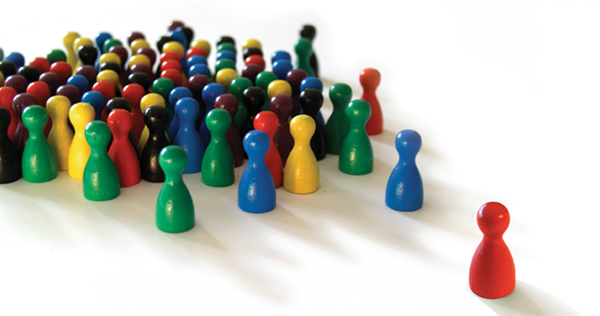Out from the crowd
By all accounts Northern Ireland is well represented at local government level. A total of 582 councillors sit across the 26 districts, debating planning applications, local leisure facilities and waste collection. Of that 582, only 30 currently sit as independents.
Certainly a minority, independent members are still found more often in the councils rather than Stormont or at Westminster. It says something, though, that the highest number of them on any council is three, in Moyle and Newry and Mourne.
In 1973, the first election for the newly established councils, there were 59 independents. That figure dropped to 51 in 1977, to 45 in 1981 and to 32 in 1985. The trend is clear; party politics was getting ahead.
An independent councillor from Larne, Roy Craig, subscribes to that theory. Before direct rule, he says, on his council there were surgeons, teachers and businesspeople, all of whom would have been considered independent.
The void left by Stormont, he suggests, meant that parties focussed more on the councils, which led to councillors seeking one to join, perhaps more vout of anxiety.
Alan Chambers, elected to North Down Council, told agendaNi that local government would be in a healthier state if more independents were still around the chamber. “That’s the way it would have been before. Businesspeople would have put their names forward, maybe 30 or 40 years ago. We have seen a sea change to a more party-orientated system,” he suggests.
Reflecting on the situation, Omagh councillor Patrick McGowan agreed and added that Stormont would be a better place if more independents were elected. The performance of independents in the Republic, he says, is a case in point, as those members now hold the balance of power.
Free-thinking members added 40 to their ranks in last year’s southern local elections. Theirs is now a total of 132 out of 883.
Independents, McGowan contends, will only have an increasingly strong voice in the future because of “all the skulduggery and cover ups” politics has suffered from and they “have a great role to play in local government from 2011,” he predicts.
There are drawbacks to the position, however. He points to the d’Hondt mechanism being used to allocate some formal council roles. Not a fan of the system at the best of times, he says using it to fill the chairmanship means that the parties are in a stronger position.
The Omagh man recalled when a councillor would nominate him or herself for a post and it would be decided simply by a show of hands, according to “who liked you and who didn’t like you”.
Although he was formerly an SDLP member, he admits that he has “never been a great party person but more a man of myself”, adding: “I have difficulty with issues where there is a party line, you have to put your hand up when your heart is telling you something else.”
Chambers echoed McGowan’s sentiment: “There are times when representatives of political parties will vote a certain way, not because it is their honestly held opinion but because that is what the party line is.”
It is not always greener on his side of the garden though. The practicalities of local government mean that every motion he puts forward for debate needs to be seconded by another councillor. “Sometimes you need a bit of support,” he says, “I am always dependent on another council member.” The answer he gets, however, is not necessarily a personal opinion but rather that of the party, which is generally consistent across its councillors.
The independent councillor, Chambers believes, certainly has a part to play even in the face of an increasingly partyorientated system. “Simple things like signing a passport or driving licence applications, people remember that. I don’t ask people to go away and come back later, I do it there and then. I think people appreciate that – taking the time,” he adds.






